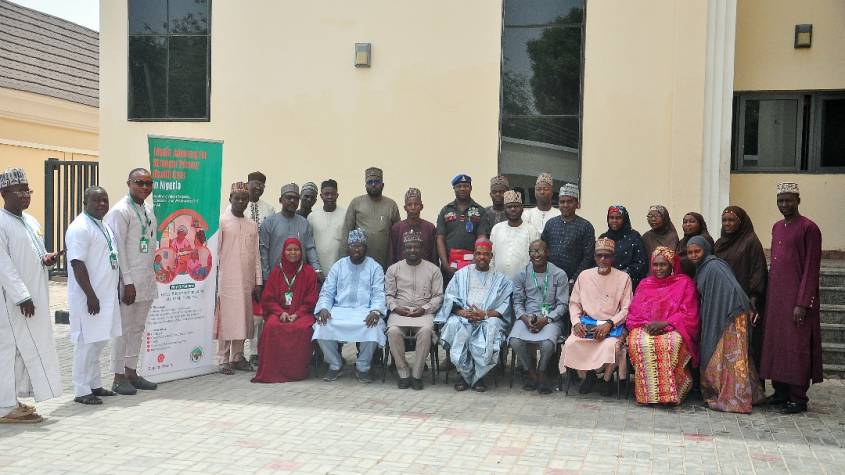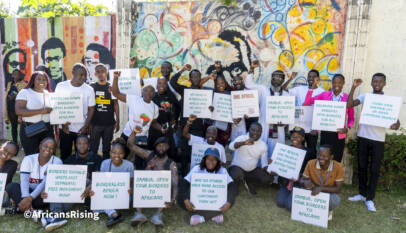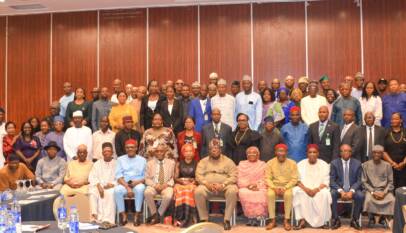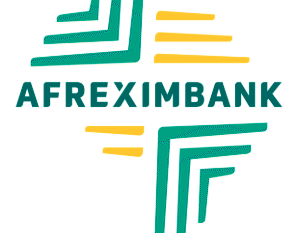EngenderHealth: Advocating for Stronger Primary Healthcare Delivery in Nigeria
By empowering journalists with accurate, timely data and insights about the state of Primary Health Care (PHC) in Nigeria, EngenderHealth’s Advocacy Solutions to Improve PHC Delivery and Health Outcomes in Nigeria Program seeks to position the media and journalists as powerful drivers of change in the health sector.
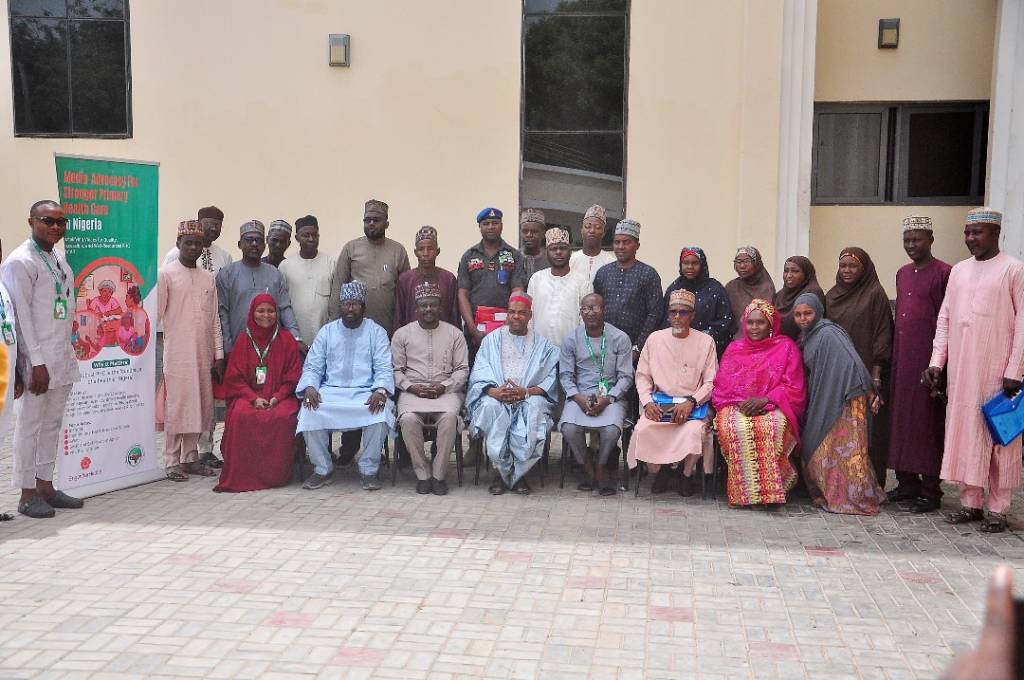
Not less than 88 million people in Nigeria live in extreme poverty, and the country ranks second globally for maternal, newborn, and child deaths, according to the World Health Organization (WHO). This underscores the need for a strong, well-resourced primary health care (PHC) system to cater to the health needs of the country’s around millions of downtrodden.
EngenderHealth’s Advocacy Solutions to Improve Primary Health Care (PHC) Delivery and Health Outcomes in Nigeria program is strengthening PHC services by driving demand, enhancing quality, and improving health outcomes through strategic advocacy in partnership with government and civil society. The program is particularly focused on transforming PHC services in three Nigerian states: Kano, Kaduna, and Lagos.
Funded by the Gates Foundation and implemented through a consortium led by EngenderHealth that includes the Centre for Communication and Social Impact (CCSI), the International Society of Media in Public Health (ISMPH), and the Legislative Initiative for Sustainable Development (LISDEL), the project aims to catalyze systemic reform in Nigeria’s fragile health system for improved Reproductive, Maternal, Newborn, Child, and Adolescent Health (RMNCAH).
The program addresses critical areas through five advocacy pillars: strengthening political commitment; improving health budgeting and accountability; driving community demand; promoting gender-sensitive policies; and using data for decision-making. It also prioritizes the use of media as a tool for shaping public discourse and encouraging responsible governance.
By 2028, the program aims to see governments in the three target states prioritizing Reproductive, Maternal, Newborn, Child, and Adolescent Health (RMNCAH), allocating sustainable funds, and strengthening accountability for healthcare delivery. To support this agenda, a three-day workshop was recently held in Kano to equip journalists with the necessary knowledge and skills to advocate effectively and report responsibly on issues related to primary health service delivery.
During his address at the workshop, Kano State Commissioner for Health, Dr. Abubakar Labaran Yusuf, emphasized the indispensable role of the media in shaping public understanding and engagement of health issues. He described the media as an influential constituency that must be strategically engaged to improve health communication and outcomes, particularly in the context of RMNCAH.
“I’m genuinely pleased to be part of this training. I firmly believe in the importance of informing the informers. The media holds significant influence, and the public often accepts their reports without hesitation. This underscores the need to actively engage media professionals and ensure they fully grasp the information they relay to others,” he stated.
Empowering Journalists to Drive Improved PHC Service Delivery
Mr Solomon Dogo, the Program Director of the International Society of Media in Public Health (ISMPH), said the workshop was designed to improve the capacity of journalists in Kano to accurately report on PHC delivery. The idea, he explained, was to equip media professionals with a deeper understanding of RMNCAH, the Sector-Wide Approach (SWAp), and the newly introduced Small and/or Sick Newborn Child (SSNC) initiative, so they could serve as both watchdogs and advocates.
“We realized journalists need technical knowledge of these issues before encouraging the public to engage with the health system, such as enrolling in the health contributory scheme or attending antenatal care. Through this intervention, we expect that maternal mortality figures in Kano will start to decline. We want to see more women attending antenatal care, more functional primary healthcare centers, and more people enrolling in the health contributory scheme,” he explained.
The ISMPH Program Director also emphasized the role of the media in shaping and influencing public behavior and holding the government accountable, underlining the need to build a generation of health-informed journalists who understand their influence and use it to improve community well-being.
Reinforcing Ethics and Accountability Journalism
Ms Husaina Said of the Kano Chapter of the Nigerian Guild of Editors (NGE) described the workshop as a powerful reminder to journalists of their ethical obligations, especially when reporting on sensitive issues like reproductive and maternal health. According to her, the participants were not only made to revisit their professional ethics but also introduced to strategies for building lasting relationships with key stakeholders in the health sector.
“This workshop has been an eye-opener for journalists in Kano. It reminded them of the ethics that govern their profession and taught them how to build rapport with relevant stakeholders to advance better health outcomes. Looking ahead, I believe that the RMNCAH-focused project will bring meaningful improvements to the healthcare system, particularly for women and children.
“Since the project is focused on maternal, newborn, and adolescent health, and considering how much money the government has allocated to the sector, journalists now have the tools to track how these funds are spent. This project will not only improve health reporting but also enhance transparency and accountability in the system,” she assured.
NUJ Backs Project to Fight Maternal Mortality in Kano
Mr Mustapha Mohammed, Vice Chairman of the Kano Council of the Nigeria Union of Journalists (NUJ), described the workshop as timely and essential, especially given the troubling statistics around maternal mortality in the state. For him, the workshop serves a dual purpose: strengthening journalists’ knowledge and positioning the media as a critical stakeholder in health reforms.
“This workshop is very important and significant for all journalists. Health is not just an issue for the community or the public, it also concerns us as journalists. One of the most powerful tools in the fight against maternal mortality is information. By empowering journalists with accurate, timely data and insights about health policies, the project positions the media as a powerful driver of change,” he underscored.
On the commitment of NUJ to the goals of the project, Mr Mohammed assured the Union’s full support and emphasized the need for data-driven advocacy, gender-responsive policymaking, and stronger collaboration between civil society and government for better health outcomes.
Strengthening Nigeria’s Primary Health Care (PHC) system is critical to ensuring equitable access to healthcare and building a more resilient health system. Likewise, a functional PHC system is necessary for reaching the poor and the most vulnerable populations with a quality and inclusive healthcare system. By fostering close collaboration with journalists and media, the program seeks to raise public awareness about PHC challenges and advocate for health policy reforms.

